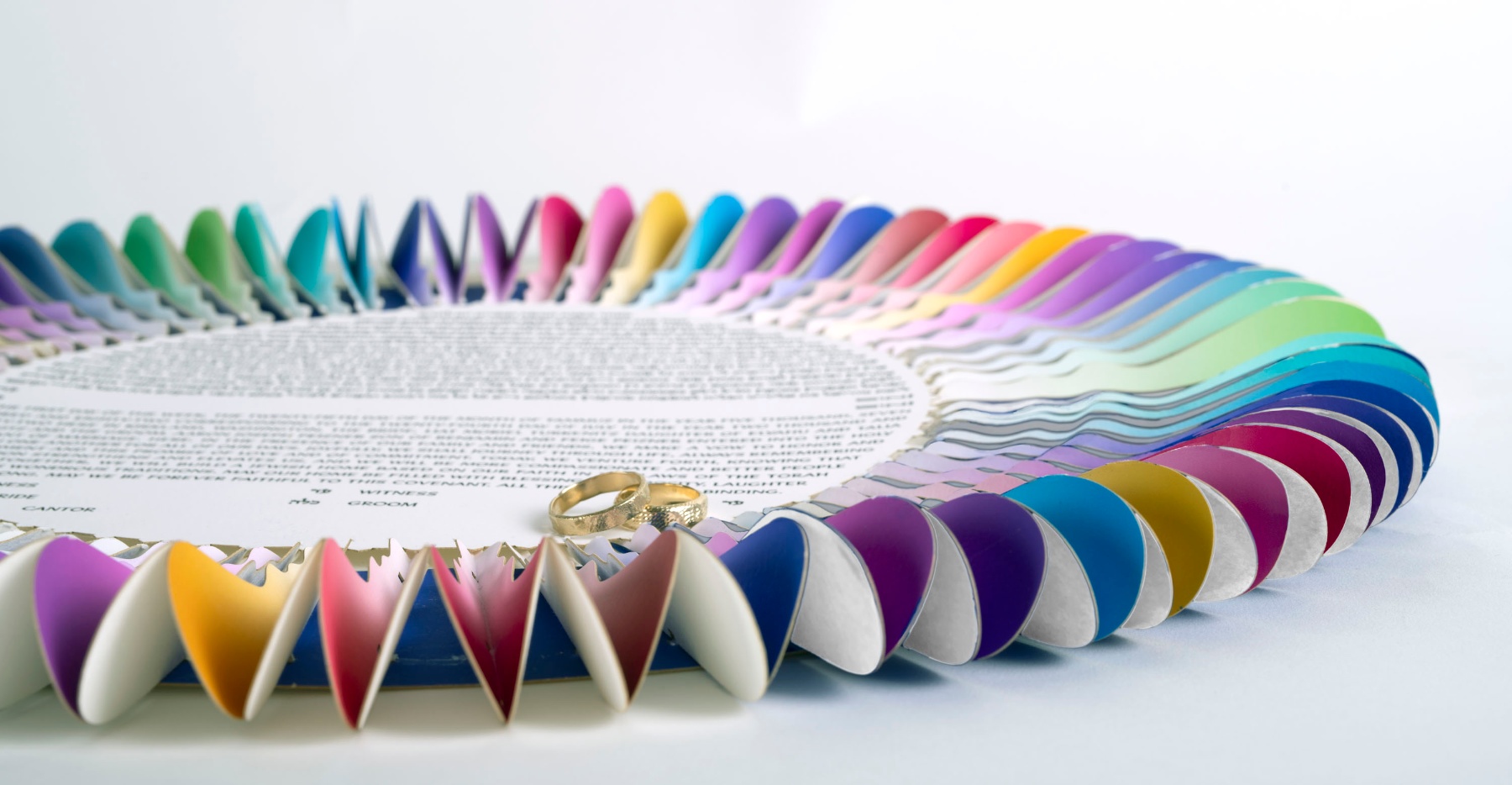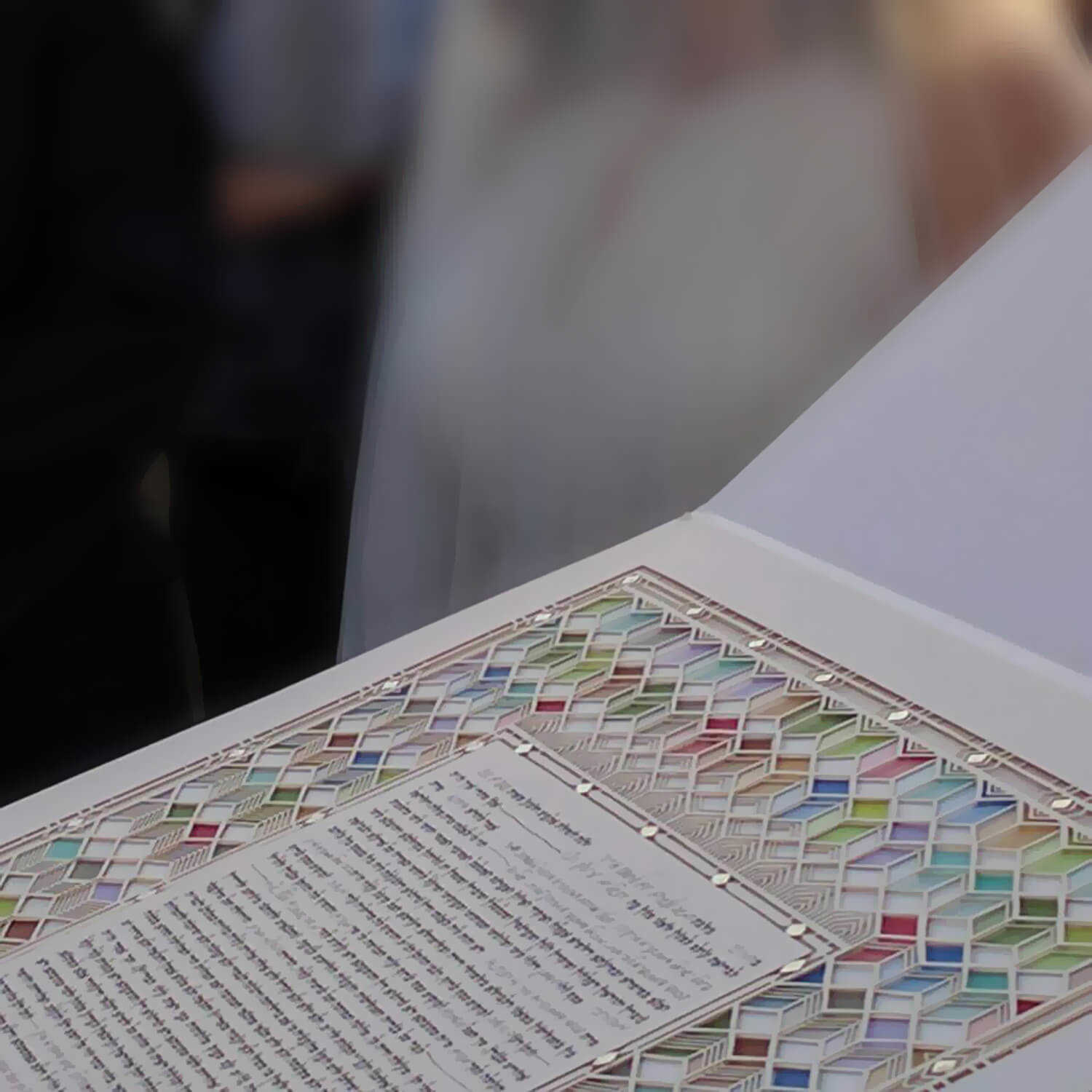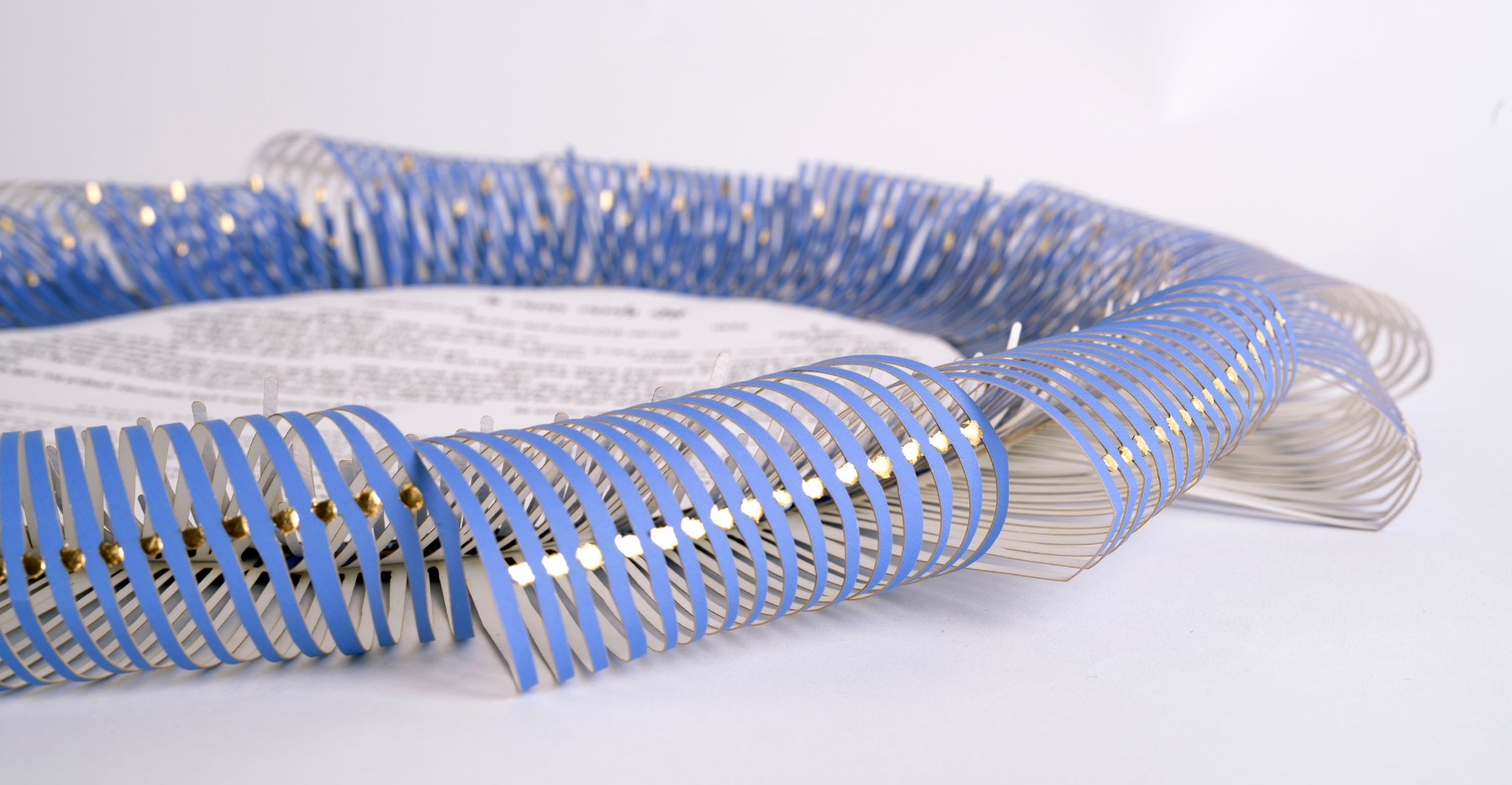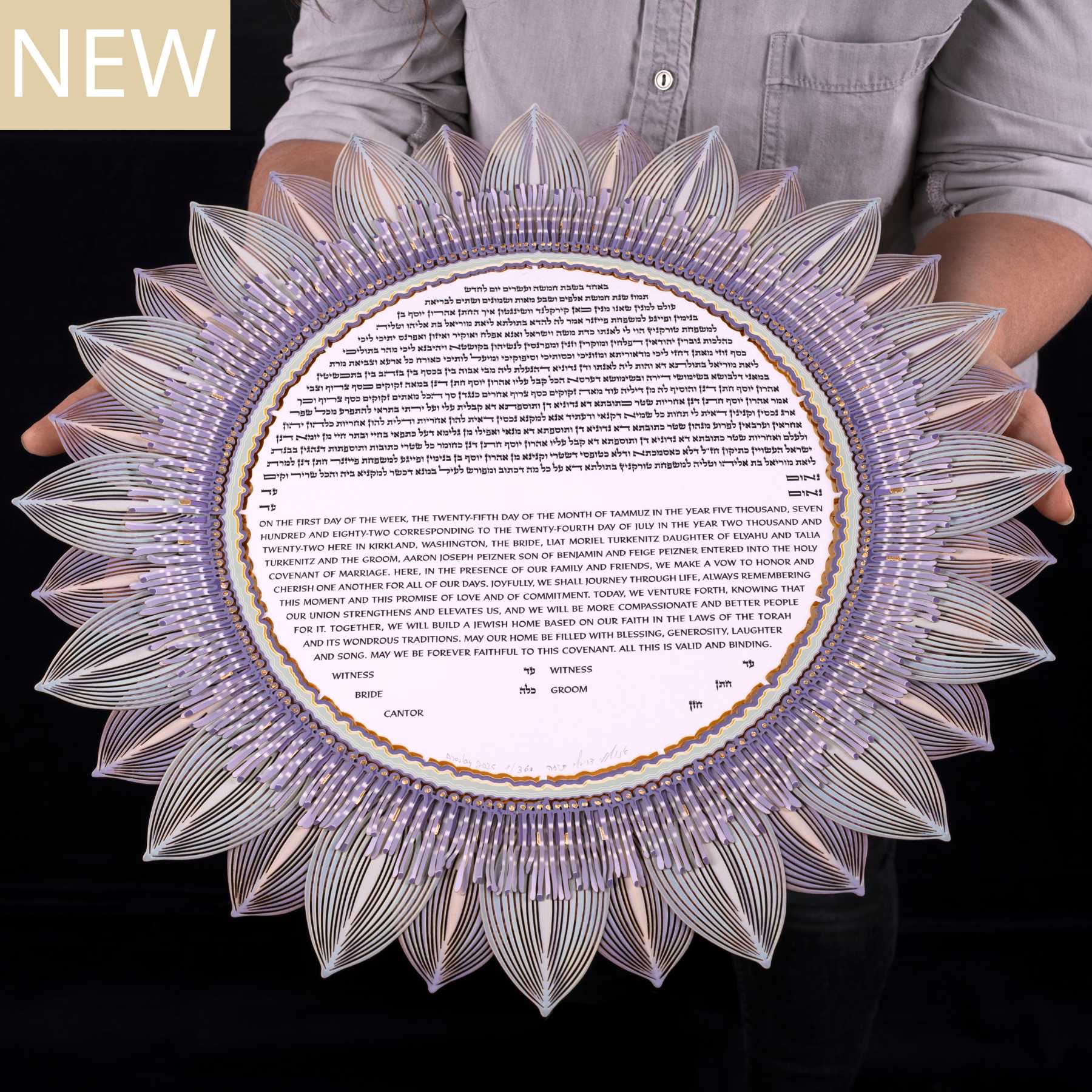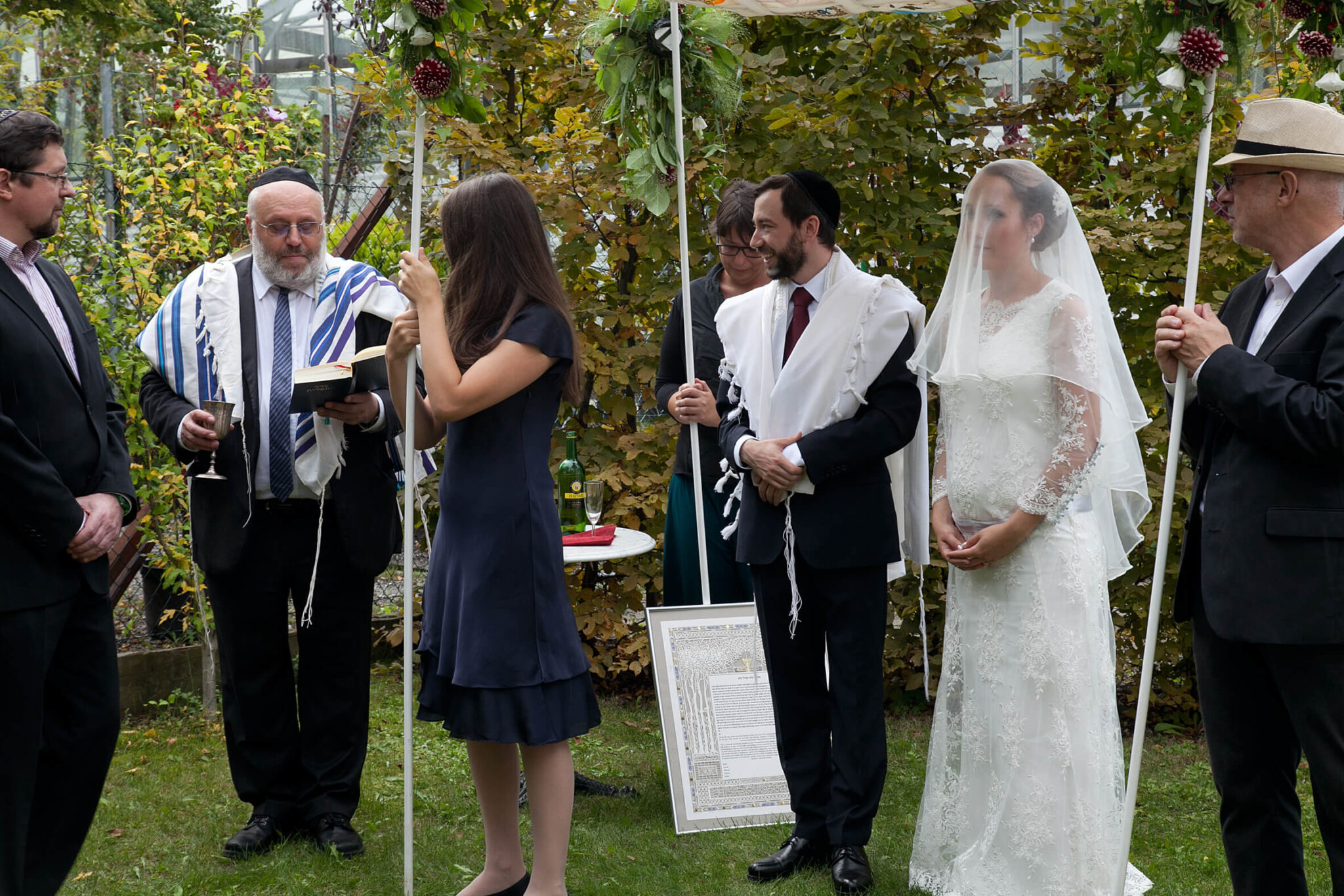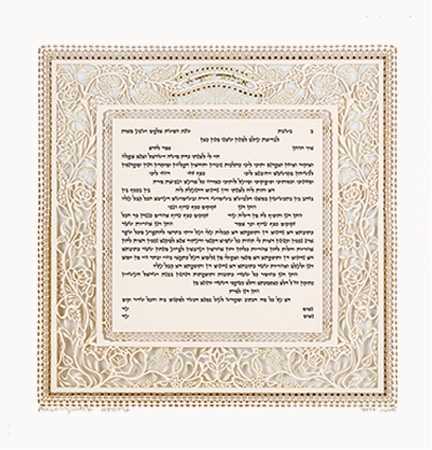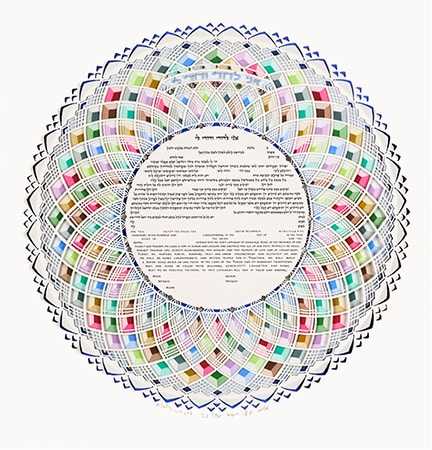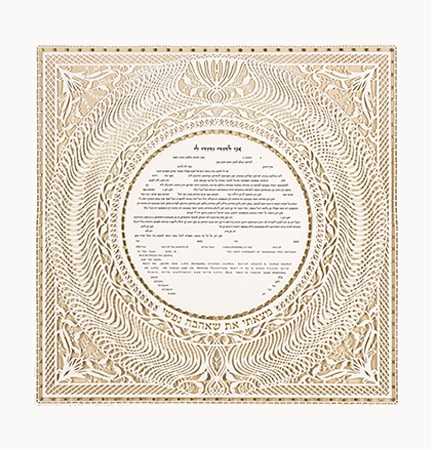Jewish Wedding Vows: A Life-Long Promise
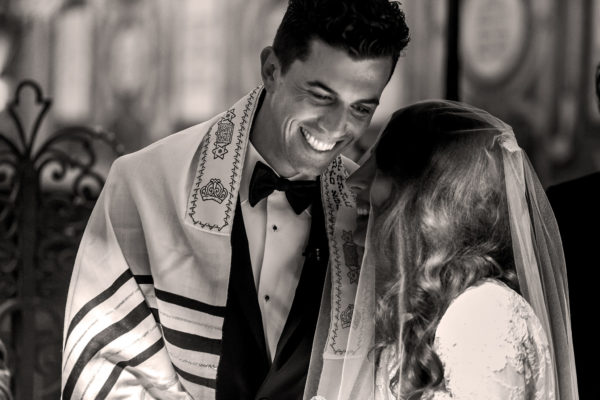
Weddings embody joy, hope, commitment, and the beginning of a shared journey in life. In Jewish tradition, the bride and groom’s journey is marked by a series of rituals, each with its own deep significance. At the heart of these ceremonies, Jewish traditional wedding vows stand as the pivotal moment, a sacred promise reflecting the eternal bond of marriage.
The Legacy of Jewish Wedding Vows
Jewish wedding vows date back to biblical times. Traditional wedding vows and, indeed, the wedding ceremony itself are steeped in symbolism and ritual. In Jewish tradition, these rites honor the heritage of Judaism. As such, they have remained largely unchanged over the centuries.
Traditional wedding vows, given under the chuppah (the wedding canopy), are more than just words; they are a marriage contract, a commitment, an affirmation of love and loyalty, and a testament to the sanctity of the bond of a marriage forged between two souls.

Modern Resonance and Significance
Today, the sanctity of the marriage contract remains steadfast. Traditional wedding vows reflect the essence of Jewish tradition, symbolizing the commitment between two individuals willing to intertwine their lives and destinies in the bond of marriage. Whether in an interfaith wedding or a conventional ceremony, the essence remains: A promise of love, companionship, and mutual respect.
Kiddushin and Nissuin
Every element of a Jewish wedding ceremony, from the Chuppah rituals to the wedding feast, is rooted in Jewish tradition. Traditional wedding vows, mainly categorized into kiddushin and nissuin, are components of this custom.
The kiddushin is the groom’s demonstration of his commitment to the bride, given before witnesses, and often involves a symbolic gift. The word itself means ‘betrothal,’ or dedication, in Hebrew. In Jewish tradition, a kiddushin signifies the couple as husband and wife.
Nissuin is the second part and is, quite literally, the wedding ceremony itself. During the nissiun, the ketubah text (the marriage contract) is read, then the ceremony begins. The newlywed couple then starts their married life together.
In ancient Jewish tradition, the kiddushin and nissuin were to take place about a year apart. Today, modern couples and interfaith couples often prefer to combine the two rites into one ceremony honoring the bond of marriage.
Sheva Brachot
Adding to the richness of the nissuin, the Sheva Brachot, or the Seven Blessings, is a cherished part of Jewish tradition. These blessings are recited first under the chuppah and again after the meal, embodying joy, love, companionship, peace, the bond of marriage, and the creation of a new home.
The Rabbi often recites the Sheva Brachot, but close friends and family may be given the honor, especially in an interfaith wedding. The recitation of the seven blessings is a joyous and meaningful moment that further emphasizes the bond of marriage and love in Jewish tradition.

Rose Garden Ketubah wedding vows
Saying “I Do”
The “I Do” moment is a universal wedding moment in all faiths, but it carries special significance in Jewish tradition. Following the exchange of traditional wedding vows, the bride and groom affirm their bond with a heartfelt “I Do,” sealing the marriage contract and acknowledging their commitment to married life.
The Exchange of Rings
The ceremonial exchange of rings is a beautiful demonstration of eternal love and devotion and plays an integral part in Jewish weddings. The wedding rings exchanged by the newlywed couple are often accompanied by a vow or declaration of love, symbolizing the perpetual bond of marriage between the newlywed couple.
Under the Chuppah
The chuppah is one of the most visually recognizable aspects of a Jewish wedding. This canopy, traditionally made of a large white cloth suspended from four poles, symbolizes the home the couple will build together. As modern couples blend tradition with contemporary aesthetics, the chuppah has become a canvas for personal expression, often adorned with flowers, greenery, or other symbols that hold meaning for the bride and groom.
The Breaking of the Glass
No Jewish wedding is complete without the iconic breaking of the glass. This act symbolizes the destruction of the Temple in Jerusalem, a historical event deeply embedded in the collective Jewish consciousness.
As the groom crushes the glass underfoot, he typically recites the vow, “If I forget thee, O Jerusalem, let my right hand forget her cunning.” This act is more than just Jewish tradition; it’s a heartfelt pledge to remember Jerusalem, even in moments of great joy. The breaking of the glass underscores the newlywed couple’s commitment to the bond of marriage and their shared heritage.

Color Song Jewish wedding vows
Mazal Tov!
In Jewish tradition, the wedding ceremony, with its marriage contract, traditional wedding vows, Chuppah rituals, and wedding feast, is a heartfelt expression of a couple’s love and commitment. It’s a celebration of a new chapter, the onset of married life, and a promise of a shared future.
So, when you hear “Mazal Tov” at the end of a Jewish wedding ceremony, it is not just a congratulatory phrase. It is a benediction, a joyful acknowledgment of the sacred bond of marriage formed through the traditional wedding vows.
In today’s world, traditions have evolved to suit modern couples’ preferences and accommodate interfaith weddings. However, the essence of Jewish traditional wedding vows remains constant. The sacred words of the marriage contract and vows continue to resonate with the same meaning they held centuries ago, forming an indelible connection between the past, present, and future.
Echoing through the hallowed walls of synagogues and in the open skies under the chuppah, these declarations of love and devotion are carried forth in the hearts of countless couples who choose to honor these ancient Jewish traditions.
Traditional wedding vows are a powerful testament to the love and commitment that modern couples embrace as they embark on their new journey together. They reaffirm that, no matter what challenges or joys lie ahead, the couple will face them together, bound by the vows they took under the chuppah.
These traditional wedding vows and the love they embody will endure when all is said and done. They shape the very foundation of the new home being created and guide the newlywed couple as they navigate the complexities and joys of married life.
Whether the wedding takes place in an ancient synagogue or a modern, sun-dappled garden, Jewish traditional wedding vows ring out with their melody, creating a song of love, commitment, and the abiding promise laid out in the marriage contract. Traditional wedding vows embody the spirit of ‘Mazal Tov’ – a good sign, a good omen, and a blessing for the beautiful journey ahead.
Explore the beauty of modern, traditional, and interfaith ketubahs.


